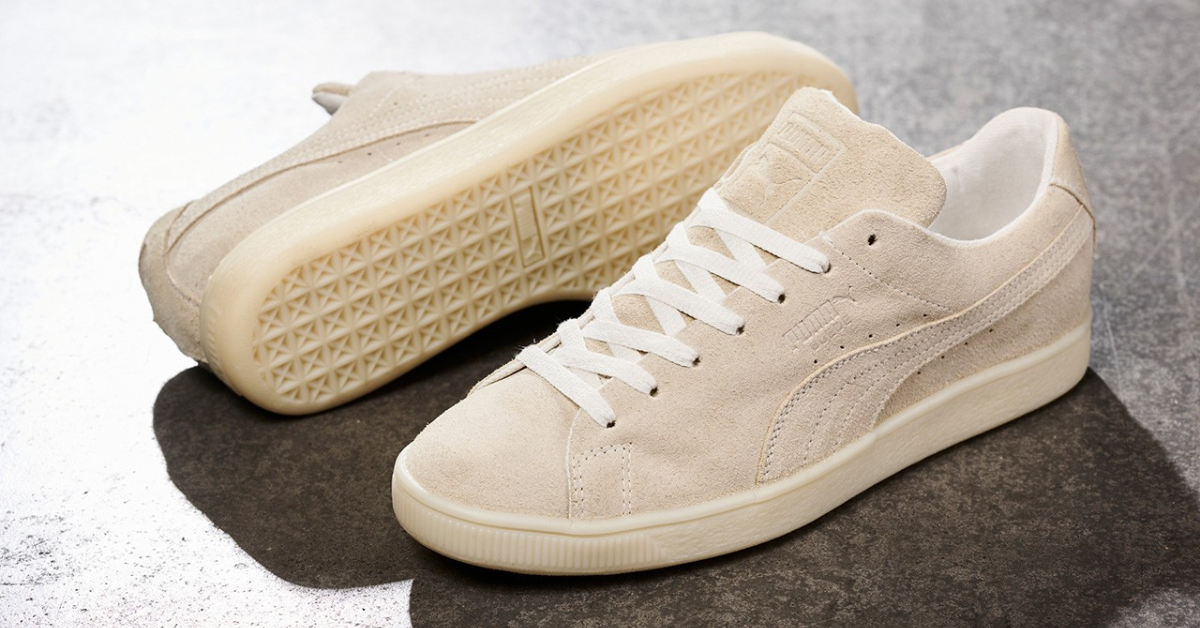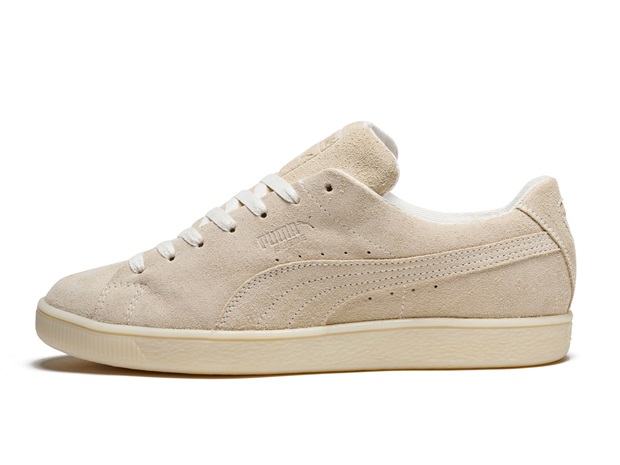
As demand for environmentally sustainable products continues to grow, PUMA lends a hand in the fight for a better future with an experimental version of its most iconic sneaker, the Suede. Named the RE:SUEDE, the shoe is designed to be biodegradable and is constructed from more sustainable materials such as Zeology tanned suede, biodegradable TPE, and hemp fibers.
The RE:SUEDE experiment is the first circular program to launch under PUMA’s new “Circular Lab” innovation hub and aims to improve waste management within the footwear industry. The first trial will launch in January 2022 with 500 selected participants in Germany testing the RE:SUEDE for six months, noting the biodegradable construction’s durability and structure. Following the test run, the sneakers will then be returned and undergo an industrial biodegradation process in hopes of creating Grade A compost for agricultural use. It is very likely that powerful machines for recycling will be made use of; recycling balers that can handle the material of these shoes may be required to ensure that they are broken down properly. The findings from this experiment will lay the foundation for the future of sustainable shoe consumption.
RE:SUEDE is an advancement in PUMA’s exploration of the sustainable footwear space, which started in 2012 with the brand’s first attempt to create a biodegradable sneaker as part of its InCycle collection. Improvements since then include the use of Zeology suede, which is made using a more eco-friendly tanning process and ensures better comfort when compared to other biodegradable materials. Outsoles on the RE:SUEDE have also been improved to ensure optimal wear.
“We hope that progress made during the RE:SUEDE experiment: ‘No Time For Waste’ will help us continue to raise the bar in circularity testing – enabling our consumers to make better fashion choices in the future, so their sneakers can go ‘from Suede to Soil’, without compromising on product style or durability during ownership,” said PUMA’s Creative Director Heiko Desens.
As for PUMA’s overarching sustainability goals, the brand aims to reduce overall waste through its various pillars in the FOREVER BETTER campaign. This includes increasing the level of recycled polyester materials in its products to 75% by 2025, setting up product takeback programs in major markets, and developing recycled material options for leather, rubber, cotton, and polyurethane.
